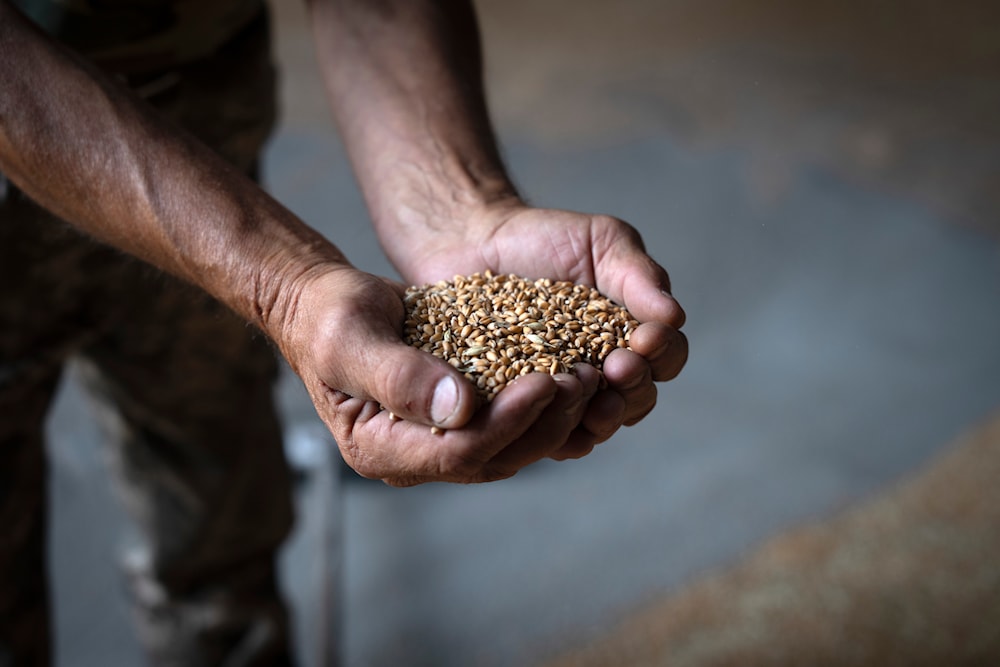Tariffs to be imposed on Russian and Belarusian grain by EU
Sources familiar with the plans claim that the European Commission is expected to announce in the coming few days a €95-per-tonne duty on cereals from Russia and Belarus, which would in turn hike prices by at least 50%.
-

A farmer holds wheat in a granary on a private farm in Ukraine, August 10, 2023. (AP)
The European Union is preparing to impose tariffs on grain from Russia and Belarus following a series of protests by farmers over cheaper imports, thus hurting the local agriculture and workforce.
This comes after Brussels resisted calls from Poland and the Baltic states to limit Russian and Belarusian imports because it would disrupt global food markets and impact developing nations.
Sources familiar with the plans claim that the European Commission is expected to announce a €95-per-tonne duty on cereals from Russia and Belarus, which would hike prices by at least 50%.
Oil seeds and derived products will also be hit with a 50% tariff. In 2023, EU imports of cereals, oil seeds, and their derivatives from Russia surpassed a record of 4mn tonnes in 2023, 1% of overall EU consumption.
Last month, Latvia imposed a unilateral ban on many food imports from Russia and Belarus, and Lithuania announced inspections of cargoes. In Poland, EU agriculture commissioner Janusz Wojciechowski said, “When Russia uses food as a weapon, we must react”.
Read next: West provoking a global food crisis: Putin
Earlier this month, Polish Prime Minister Donald Tusk warned that Poland could follow Latvia's suit, but would "prefer that we decide together, as the whole EU, on sanctions on Russia and Belarus on food and agricultural products."
Last week, European Commission president Ursula von der Leyen told Tusk she was “evaluating the possibility of introducing restrictions on the import of agricultural products from Russia”.
Trade commissioner Valdis Dombrovskis will likely enforce tariffs rather than sanctions based on not requiring unanimous approval from capitals and would allow the transit through the EU en route to Africa and Asia.
An EU official declared that cereal prices were at four-year lows while Russia was "very competitive on cereal markets and is putting significant pressure."
The core of the farmers' grievances lies in the exemption granted to Ukrainian truckers from acquiring permits to cross the Polish border since February 2022, making their services more cost-effective and appealing to customers. Moreover, farmers in neighboring countries have complained about product surpluses affecting domestic prices.
In September 2023, Poland, Slovakia, and Hungary decided to impose their own restrictions on Ukrainian grain imports after the European Commission opted not to extend a ban affecting Ukraine's five EU neighbors.

 3 Min Read
3 Min Read









